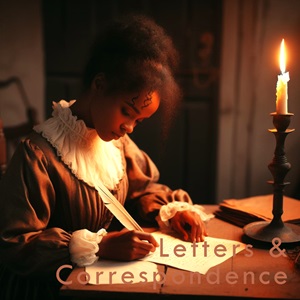
Enslavement to
freedom


Notes, observations, historical hints, tidbits and stories from the community.
Study Areas:
Anti-Slavery
Old Mail:
Archived
Letters Page 1
Archived Letters Page 2
Archived Letters from 2003
Archived
Letters from 2004
Archived
Letters from 2005
Archived
Letters from 2006
Archived
Letters from 2007
2009 Mail
Back Online Calobe Jackson, Jr.
Journals of
Charles Rawn Michael Barton
Mrs.
Philome Brannock Barbara
Barksdale
George
Chester Tim
Niesen
Harrisburg's
First Black Cheerleaders Beverly Wills
One More...
Mike writes:
History has never been better presented than
here on this web site, at least for a white male born
and raised in Harrisburg. I found this website because
I was searching for more information about the
Harrisburg Cemetery, but I found so much more than I
could have imagined. The stories of history here may
be from a 'Black Perspective", but to me they were
just wonderful stories of the history we all share.
Who knew how much Harrisburg was a part of the making
and growing of America? Obviously those of you who
took on this project knew far more than I knew or ever
learned in school. We were taught many things about
early Harrisburg of course, and Pennsylvania. This in
depth writing and presentation brings the past to
life.
Thanks for making this available to all who stumble
this way. This is very much a website to bookmark.
(11 October 2009)
Editor's reply: Thanks,
Mike, for the words of support. History is, and must
be, multi-faceted. We learn one version in school,
usually the version favored by the dominant culture
or class, but of course there exists a unique facet
for each race, gender, religion and class, yet
amazingly it is all inextricably linked into the
same wonderful story of our shared culture. I
believe the more we study a different historical
perspective, the more fascinating our own historical
perspective appears. The study and sharing of
African American history (or Hispanic or Women's or
Native American or Asian or Jewish history, or ...)
does not fracture and detract from American history,
as some fear, but rather it enriches it for those of
us who are willing to accept a "shared history,"
which is the purpose of this site.